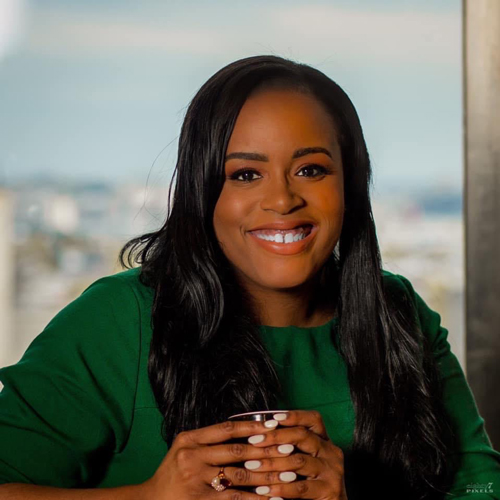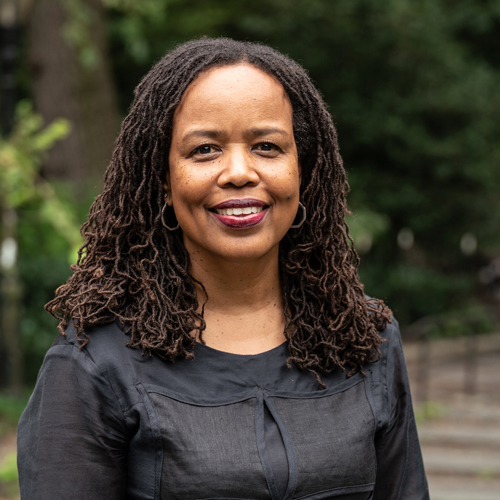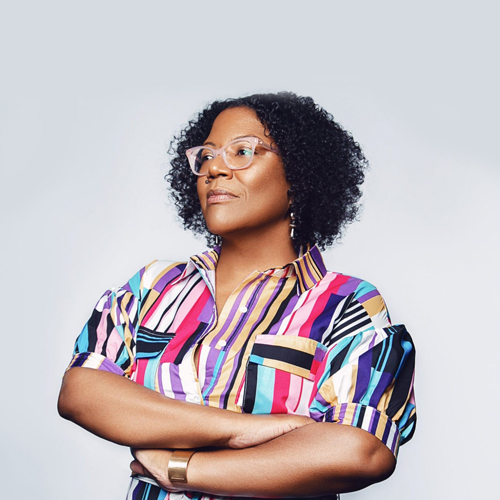Hank Willis Thomas
Hank Willis Thomas, artist and cofounder of For Freedoms
Hank Willis Thomas (born 1976, Plainfield, NJ; lives and works in Brooklyn, NY) earned his BFA from New York University and MA/MFA from the California College of the Arts. He received honorary doctorates from the Maryland Institute of Art, Baltimore, and the Institute for Doctoral Studies in the Visual Arts, Portland, ME.
Thomas is a conceptual artist focusing on themes relating to perspective, identity, commodity, media, and popular culture. His work often incorporates widely recognizable icons—many from well-known advertising or branding campaigns—to explore their ability to reinforce generalizations developed around race, gender, and ethnicity. Thomas created one of his most iconic photography series in 2006, B®anded, where he superimposed bodies of Black men with the Nike swoosh logo, recalling the history of branding slaves in America as well as the literal and figural objectification of Black male bodies in contemporary culture.
A trained photographer, over the past several years Thomas’s practice has evolved to incorporate a variety of media, including mirrors and retroreflective vinyl to challenge perspectives in his work, exploring 20th-century protest images and often overlooked historical narratives. By adding multiple, hidden layers, Thomas asks the viewer to consider who is included in history and who is erased, revealing the complicated nature of storytelling and the bias of history.
Influenced by social history and the hard-fought, perennial battle for equality in all areas of his work, Thomas co-founded For Freedoms with artist Eric Gottesman in 2016 as a platform for creative civic engagement in America. Inspired by American artist Norman Rockwell’s paintings of Franklin D. Roosevelt’s Four Freedoms (1941)—freedom of speech, freedom of worship, freedom from want, and freedom from fear—For Freedoms uses art to encourage and deepen public explorations of freedom in the 21st century. In 2017 For Freedoms was awarded the ICP Infinity Award for New Media and Online Platform.
Thomas is a recipient of the Gordon Parks Foundation Fellowship (2019), The Guggenheim Fellowship (2018), AIMIA | AGO Photography Prize (2017), Soros Equality Fellowship (2017), Aperture West Book Prize (2008), Renew Media Arts Fellowship from the Rockefeller Foundation (2007), and the New York Foundation for the Arts Fellowship Award (2006). He is also a member of the Public Design Commission for the City of New York.
His work titled A Place to Call Home (Africa America Reflection) (2020) in the National Gallery’s collection is on view during Afro-Atlantic Histories.







